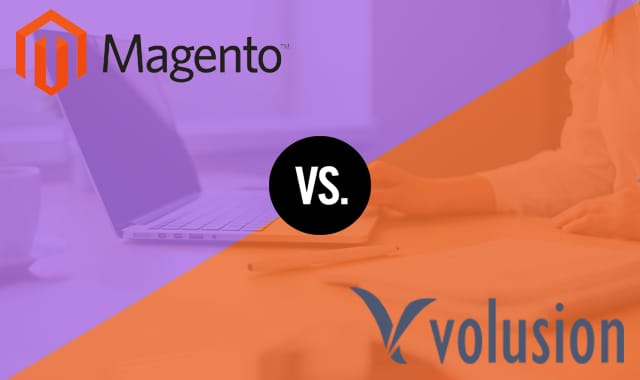
Has Your eCommerce Business Outgrown Volusion?
We’ve recently had merchants come to us on Volusion who were thinking of migrating to another eCommerce platform. As a certified Magento development agency, merchants want to know if Magento is the right choice. We know Magento is a great choice for eCommerce merchants. It’s fast, scalable, and comes with a community of developers ready to build. However, Magento may not be the best choice for certain types of merchants. Small businesses (less than $500K in annual revenue) may not be ready for such a robust platform like Magento. For medium to large businesses who are growing on an upward trend, Magento is the better choice. It really depends on each business’s unique situation.
We’re breaking down the differences between Magento vs Volusion to help merchants looking to migrate.
Is Magento the best choice? For some merchants, yes it is.
We recently launched TigerFitness.com on Magento 2.1 Enterprise Edition last year. For Tiger Fitness, the choice was clear. They were operating on Volusion and the site lacked the ability to properly customize the front-end and could not support their growing need for scalability. Tiger Fitness was growing fast and needed a platform that could handle major increases in traffic.
Another client that we are about to launch on Magento 2.2 Open Source came to us experiencing difficulties with limited design and control. Our client’s old site was originally built as a static site and over time had been integrated with Volusion for eCommerce. The hybrid platform was not mobile-friendly and offered limited design, control, and flexibility.
Magento vs. Volusion: Breakdown of Services
Magento
According to BuiltWith, Magento Community and Magento Enterprise editions make up a large portion of the eCommerce platform community with a combined total of 11%. In other words, out of all the many eCommerce platforms available, 11% of all eCommerce websites are on Magento. The platform is free to download for community edition, open source, powerful and scalable, it’s no surprise that Magento is one of the most used eCommerce platforms worldwide.
In addition, Magento offers an Enterprise edition which is a paid version with fees based on a merchant’s unique gross merchandise sales value (GMV). Enterprise Edition is full of out-of-the-box features not included in Magento Community edition, making Enterprise a great option. Enterprise offers several exciting marketing features including content scheduling, customer loyalty, automated eMail options, analytics and more. For more on the differences between the two versions, read this post on Magento 2 Community Edition vs Enterprise Edition.
Magento Pros:
- Feature-rich, out-of-the-box with flexible options for nearly all languages and currencies
- Thousands of extensions are available thanks to the flexible API architecture
- Manage multiple stores from one admin
- Supportive Community with a slew of developers and partners ready to build and solve problems
- In-depth training available to help you get started
- Two editions are available, community for small businesses and enterprise for larger merchants
Magento Cons:
- Magento can be very complicated for a non-tech savvy merchant
- Development can get expensive, especially for custom work and certified development
- Self-hosted, meaning it requires a Magento hosting provider
Volusion
Volusion isn’t included in BuiltWith’s top 10 market share breakdown. In fact other data from BuiltWith suggests that Volusion powers around just 20k websites worldwide. That is drastically smaller compared to Magento’s 217k websites worldwide. In addition, Volusion is considered a middle ground platform meaning merchants have more control with a Volusion site than on eBay or Amazon. However, Volusion merchants don’t have the same flexibility and control they would have on a customizable platform like Magento. Designed for ease of use to get small merchants going, Volusion is a one-stop-shop supplying hosting, set-up and customer support, making it an easy choice for smaller or less tech savvy merchants.
Volusion Pros:
- Easy to set up
- Hosting provided
- Technical support provided
- Comes installed with many basic payment options
Volusion Cons:
- Limited amount of extensions
- Lack of Global support
- Lack of b2b features
- Performance limits b/c of shared hosting environment
- Templates and features for small lower-complexity merchants who don’t have a need for differentiation
- Integration with other systems limited to Volusion API
Magento vs Volusion: Are you ready to move to Magento?
Magento is a great option for medium to large business with high-volume stores. Or businesses managing multiple stores in one instance. For small merchants, Volusion can be a great option. Magento can be costly and overwhelming to merchants with limited time and resources. Further, for merchants set on moving from Volusion, Shopify or Bigcommerce can be other options to consider. However, we only specialize in Magento but will help any size merchant find the right resources.
If you are a growing business looking for an alternative solution for Volusion, Magento is a great choice. Contact us for more information about Magento and the Volusion to Magento migration process.
